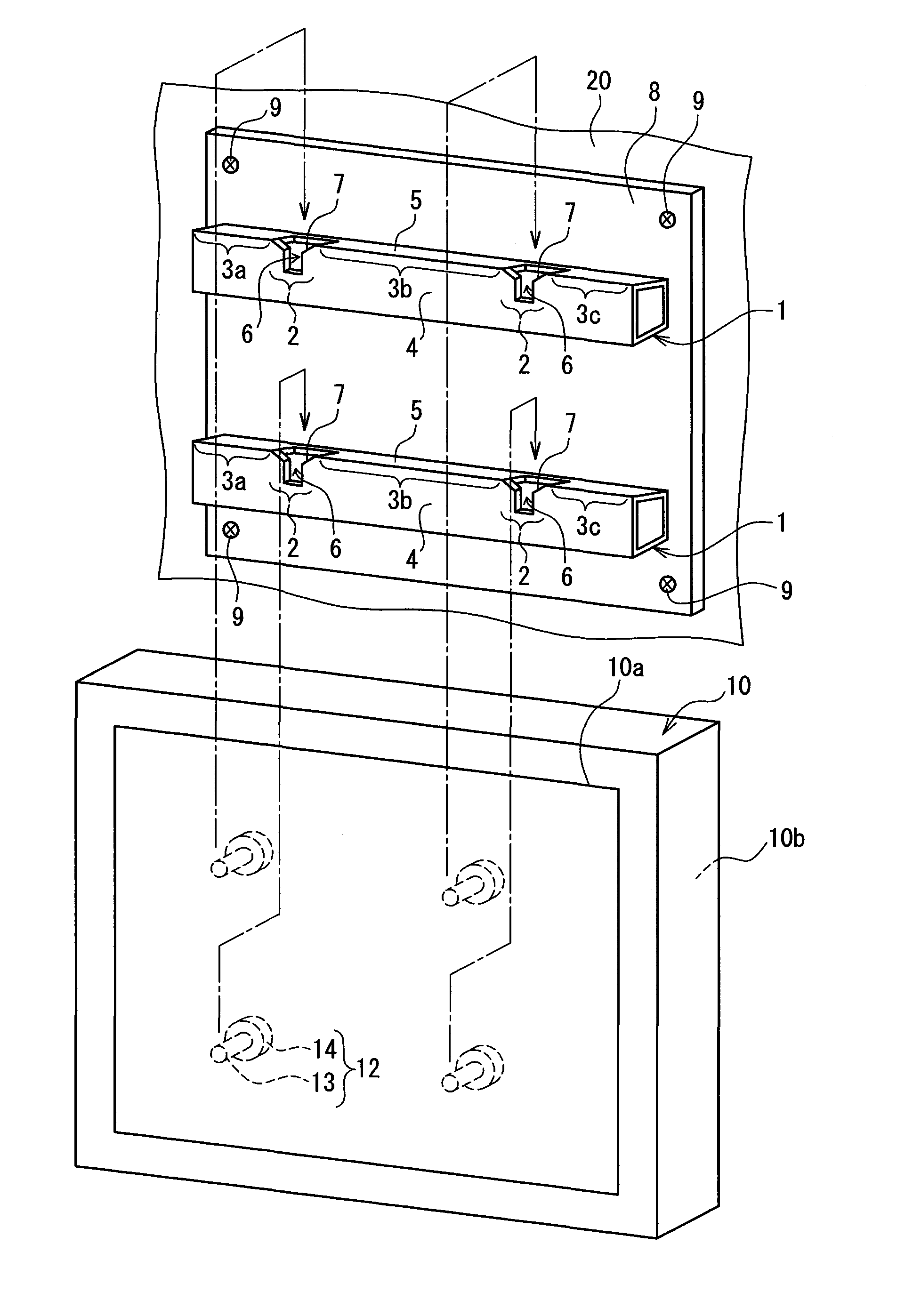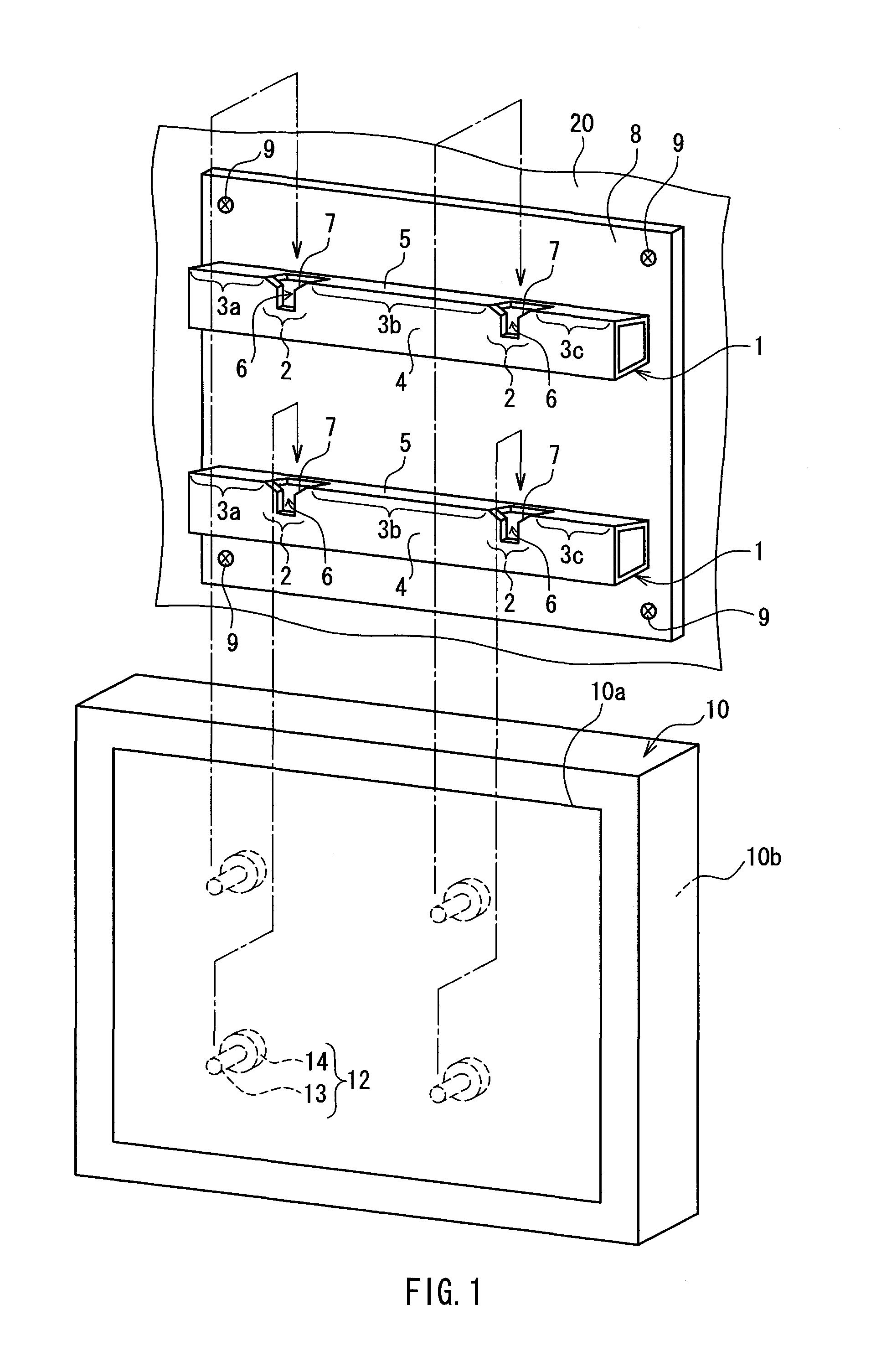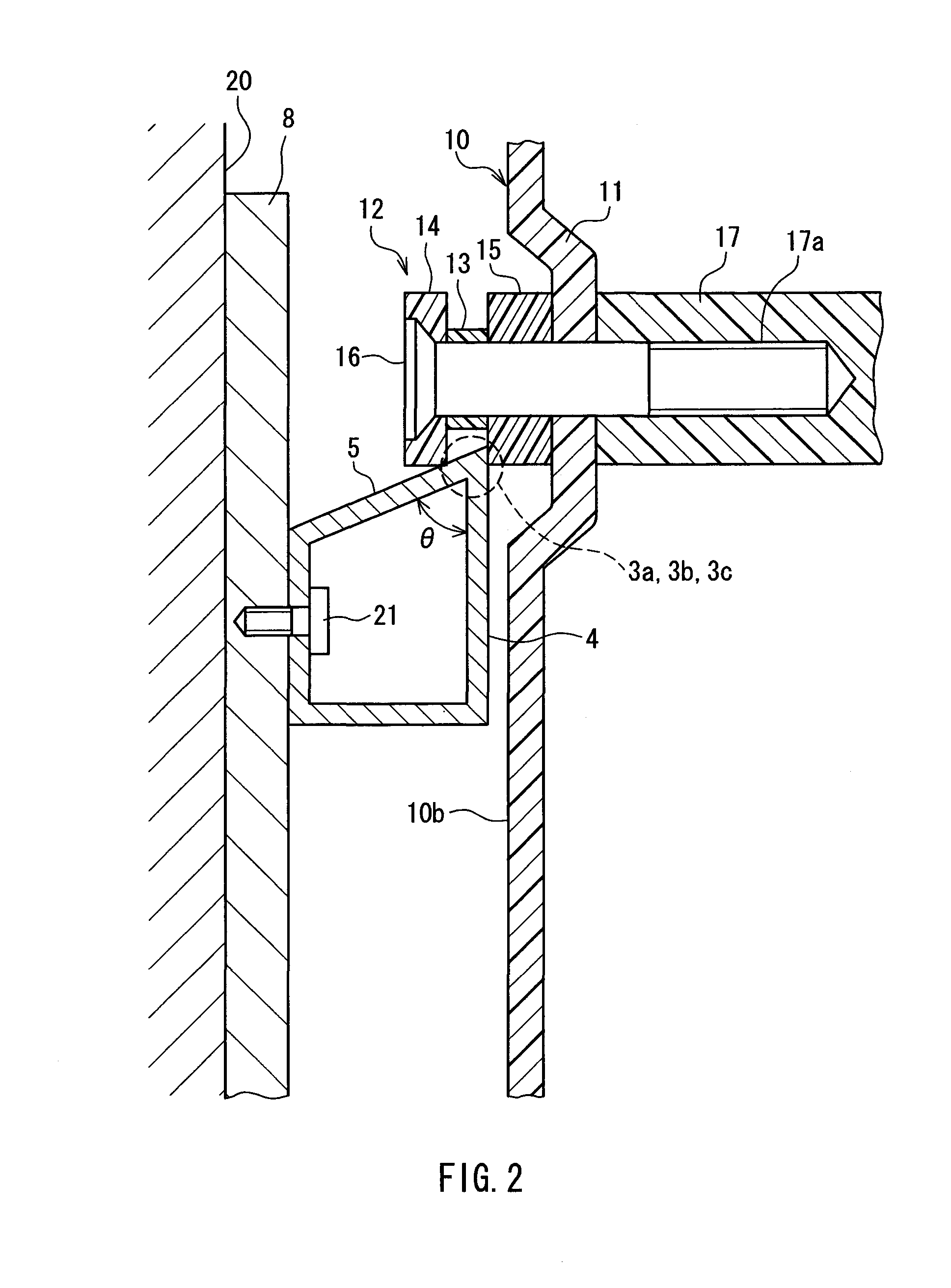Hanger and display
a technology of hanging rods and slats, which is applied in the field of hanging rods and displays, can solve the problems of increasing the screen size of thin display televisions, putting a heavy burden on operators, and reducing the service life of operators, so as to achieve easy wall hanging operation and easy alignment. , the effect of reducing the burden
- Summary
- Abstract
- Description
- Claims
- Application Information
AI Technical Summary
Benefits of technology
Problems solved by technology
Method used
Image
Examples
embodiment 1
[0037] The following is a description of a hanger and a display according to Embodiment 1 of the present invention with reference to FIGS. 1 to 6. First, the structure of the hanger according to Embodiment 1 of the present invention will be described with reference to FIGS. 1 and 2. FIG. 1 is a perspective view showing the structure of the hanger and the display according to Embodiment 1 of the present invention. FIG. 2 is a cross-sectional view showing the structure of the hanger shown in FIG. 1. Furthermore, FIG. 2 shows the state in which a display main body 10 is placed temporarily on a support member 1.
[0038] As shown in FIG. 1, the hanger is used for hanging the display main body 10 on the wall, and includes projecting portions 12 that are mounted on a surface 10b (a rear surface) of the display main body 10 opposite to a display screen 10a, and the support members 1 connected to the projecting portions 12. This hanger and the display main body 10 constitute the display accor...
embodiment 2
[0064] Next, a hanger and a display according to Embodiment 2 of the present invention will be described with reference to FIGS. 7 to 10. FIG. 7 is a plan view showing support members constituting the hanger according to Embodiment 2 of the present invention. FIG. 8 is an exploded perspective view showing an enlarged portion of the support members shown in FIG. 7. FIG. 9 is a cross-sectional view showing the structure of the support member shown in FIG. 7.
[0065] As shown in FIG. 7, in Embodiment 2 of the present invention, support members 51a and 51b are used in place of the support members 1 shown in FIG. 1. In Embodiment 1, two support members 1 are attached to the wall surface 20 in parallel with each other, whereas in Embodiment 2 of the present invention, the support members 51a and 51b are attached to the wall surface 20 in such a manner as to intersect each other. Furthermore, projecting portions to which the support members 51a and 51b are to be connected are similar to the...
embodiment 3
[0075] Now, a hanger and a display according to Embodiment 3 of the present invention will be described with reference to FIGS. 11 to 13. FIG. 11 is a perspective view showing a support member constituting the hanger according to Embodiment 3 of the present invention. FIG. 12 is a cross-sectional view showing the structure of the support member shown in FIG. 11. FIG. 13 is a side view showing the support member shown in FIG. 11.
[0076] As shown in FIG. 11, in Embodiment 3 of the present invention, a support member 61 is used in place of the support member 1 shown in FIG. 1. The support member 61 is constituted by a portion 64 that extends in parallel with a horizontal direction and portions 65 and 66 that extend in parallel with a vertical direction when the support member 61 is fixed to the wall surface 20. The support member 61 thus has an inverted-U shape (in other words, a shape obtained by connecting two Ts that are next to each other) when viewed from a front side.
[0077] More...
PUM
 Login to View More
Login to View More Abstract
Description
Claims
Application Information
 Login to View More
Login to View More - R&D
- Intellectual Property
- Life Sciences
- Materials
- Tech Scout
- Unparalleled Data Quality
- Higher Quality Content
- 60% Fewer Hallucinations
Browse by: Latest US Patents, China's latest patents, Technical Efficacy Thesaurus, Application Domain, Technology Topic, Popular Technical Reports.
© 2025 PatSnap. All rights reserved.Legal|Privacy policy|Modern Slavery Act Transparency Statement|Sitemap|About US| Contact US: help@patsnap.com



